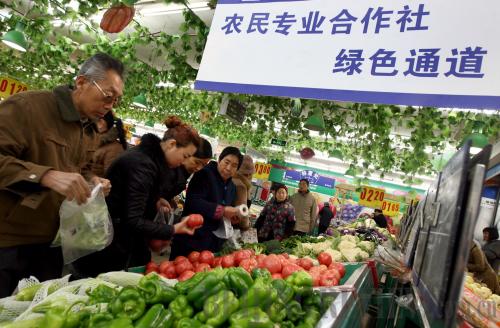|
Macro-control Measures Toughened
 |
|
(XUE JUN) |
Rising prices across the country, including consumer goods and properties, prompted policymakers to strengthen macroeconomic controls in 2010.
Since July, the consumer price index, an effective gauge of inflation, has grown faster than 3 percent, the government-set target for 2010. The index went as high as 4.4 percent year on year in October and 5.1 percent in November, a record high since July 2008.
Meanwhile, house prices in 70 large and medium-sized cities experienced year-on-year growth of more than 10 percent between February and July. Despite a slowdown since May, the prices still grew 7.7 percent in November.
 |
|
(LONG HONGTAO) |
In response, the government took stiff efforts to cool nationwide inflationary jitters and let air out of the asset bubbles.
In a bid to mop up excess liquidity, the People's Bank of China, the central bank, raised the reserve requirement ratio six times this year, on January 18, February 25, May 10, November 16 and November 29 and December 20, respectively.
The central bank also raised the benchmark one-year lending and deposit rate on October 20, the first increase since December 2007.
On November 20, the State Council announced 16 measures to rein in rising commodity prices, including boosting agricultural production and enhancing price supervision.
Efforts to cool the surging house prices are no less vigorous. The State Council on April 16 issued 10 rules, stipulating down payments must not be lower than 50 percent and mortgage rates must be raised to 1.1 times the benchmark lending rate for a second-home purchase.
On September 29, the government ordered all first-home buyers will have to pay at least a 30-percent down payment, up from a previous 20-percent requirement. In addition, the government also required commercial banks to suspend loans to third-home buyers.
Policymakers at the recently concluded Central Economic Work Conference vowed to take a prudent monetary stance for next year, marking a switch from the appropriately loose policy adopted to counter the financial crisis.
| 